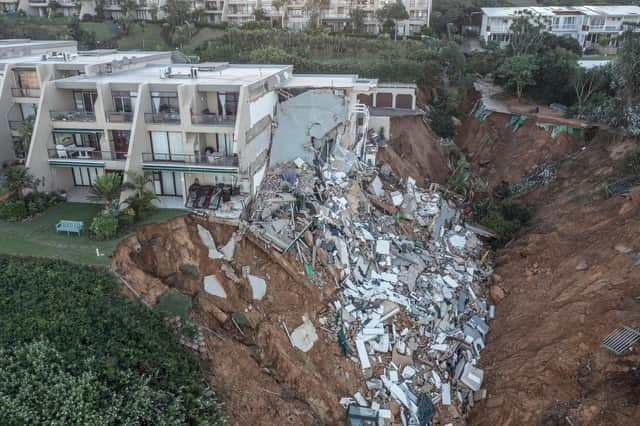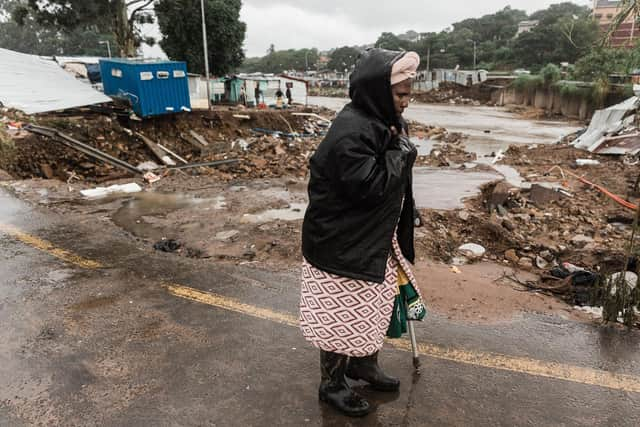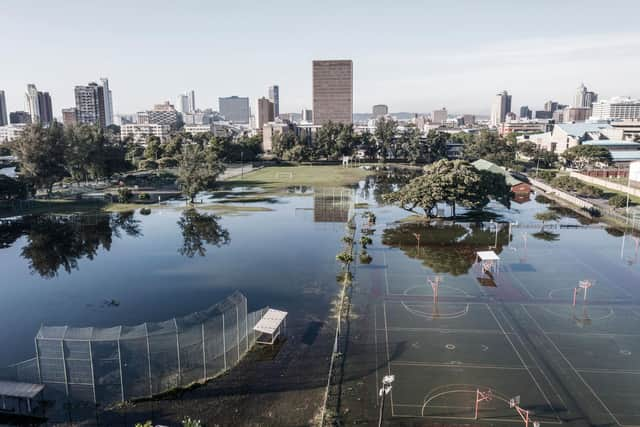Climate change: Floods and droughts in Africa are just a taste of the coming storm – Dr Richard Dixon


This week’s floods in KwaZulu-Natal province in eastern South Africa have killed more than 400 people, left 40,000 without shelter and rescuers are still searching for dozens of missing people. The floods were caused by torrential rains from a massive storm which authorities have described as one of the worst in the country’s history.
The extreme wet weather in southern Africa is driven by La Niña, a cooling pattern in the Pacific Ocean that occurs every 20 years or so – although this is the second one in two years – and is the opposite of the more well-known El Niño Pacific warming events. Climate change models suggest that La Niña events will become twice as frequent by the end of the century, and are likely to become stronger.
Advertisement
Hide AdAdvertisement
Hide AdMeanwhile, 6000km to the north, in the Sahel, lack of water is the problem. The Sahel is a zone that stretches across the centre of Africa below the Sahara Desert and includes parts of more than a dozen countries.
Over the last three years, the number of people on the brink of starvation in Burkina Faso, Chad, Mali, Mauritania and Niger has tripled to nearly 11 million. Two-thirds of the population make a living from agriculture and livestock. Lack of water for animals, crops and people is driving conflict and migration from rural areas into cities.
The United Nations recently warned that the war in Ukraine will add to the problems as the price of grain shoots up, with global prices already 70 per cent higher than they were two years ago.
Climate change is a major factor in both these disasters, with parts of Africa already seeing temperatures rising well ahead of the global average.


It is the poorer regions of the planet that are most impacted by climate change, even though they have done the least to create the emissions that drive it. The recent UN Intergovernmental Panel on Climate Change reports found Africa will be particularly hard hit by current and future changes, with parts of the continent becoming uninhabitable and staple food crops set to see massive declines in production.
Climate change is all about more extreme weather and recent reports suggest almost all of Africa is in for more and heavier downpours, and more frequent heatwaves.
KwaZulu-Natal and the rest of east southern Africa have already seen increases in heavy rain and flooding, and are predicted to see storms of increasing strength.
Ironically, the future predictions for the Sahel are for more heavy rain and flooding as the climate warms, likely to be enough to do great damage but not enough to replenish water supplies, adding to the woes of local populations.


Advertisement
Hide AdAdvertisement
Hide AdThose least responsible for climate change continue to feel its impacts hardest. From flooding to drought, these impacts are only going to get worse as the planet warms. As the scientists repeatedly say, very rapid reductions in emissions are desperately needed.
Dr Richard Dixon is an environmental campaigner and consultant
A message from the Editor:
Thank you for reading this article. If you haven't already, please consider supporting our trusted, fact-checked journalism by taking out a digital subscription.
Comments
Want to join the conversation? Please or to comment on this article.
